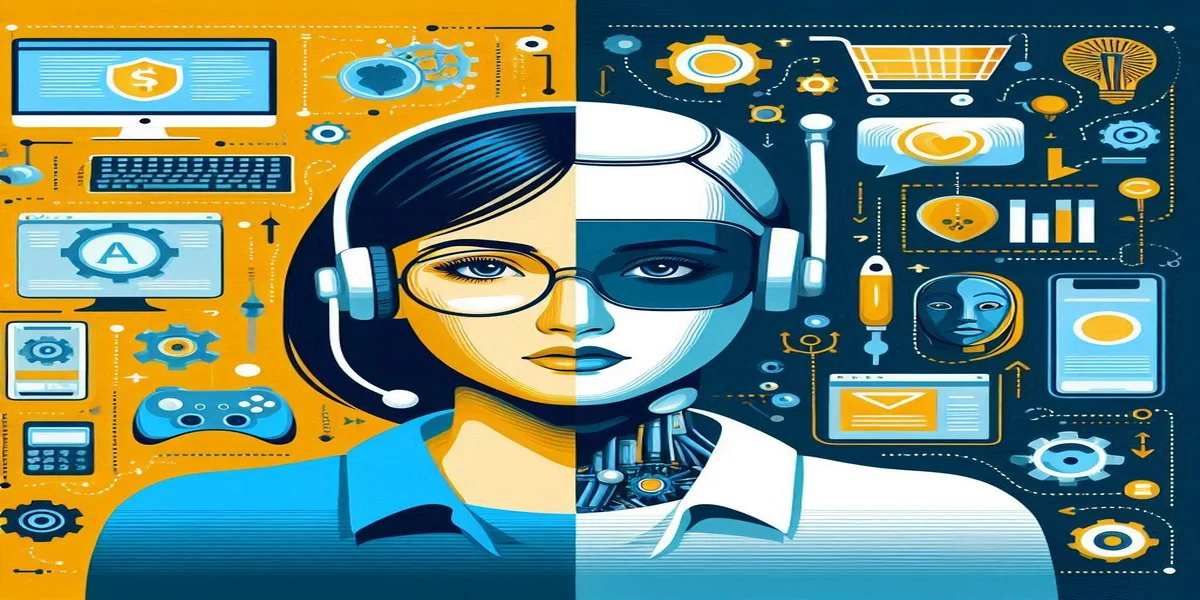In the fast-paced world of e-commerce, delivering top-notch customer service can be the deciding factor for success. As businesses adopt more advanced technologies like AI web design and AI web development , the question arises: Who handles customer service better, humans or AI? While humans bring empathy and intuition to the table, AI offers speed, efficiency, and scalability.
The Role of AI in E-commerce Customer Service
The growing use of AI in e-commerce is revolutionizing how brands engage with their customers. Big Sur AI: the e-commerce AI platform is one such tool that promises to transform customer interactions by providing instant responses and accurate data. But when it comes to more complex tasks like solving issues related to coffee packaging for e-commerce or subscription management, can AI truly replace humans? AI e-commerce tools can answer simple queries, provide product recommendations, and even track orders. For example, the Lacoste e-commerce specialist often uses AI to enhance product listings, ensuring that the right items are shown based on customer behavior.
Headless Commerce and AI
Another trend shaping e-commerce is headless commerce, where the front end of a website is decoupled from the back end, allowing more flexibility. AI’s role in headless ecommerce platforms has been increasing, making it easier to provide personalized experiences. These platforms, like headless WordPress ecommerce, use AI to analyze customer data and provide tailored product suggestions in real-time. While composable commerce vs headless ecommerce offers different advantages, both leverage AI to enhance user experiences, offering companies like Shopify and WooCommerce the ability to integrate AI-driven solutions easily.
Human Touch vs. AI Efficiency
While AI-driven customer service offers speed, it lacks the personal touch humans can bring. When dealing with complex issues like subscription cancel e-commerce UX or resolving product recalls, humans are better equipped to understand the emotional nuances of customer frustrations. A VP e-commerce Frette might still rely on human teams to handle the most delicate situations, even with AI at their disposal. On the flip side, AI-driven tools in e-commerce, like AI web development, handle large-scale inquiries, making them indispensable for managing queries during peak sale times. Still, businesses must decide if the lack of empathy from AI is a fair trade for the speed it offers.
Experience on E-commerce Platforms
From Shopify Collabs to headless CMS ecommerce, companies are exploring how AI can help enhance customer experiences. Tools like AI marketing e-commerce not only streamline processes but also provide insights that humans might miss. The best one product design in Shopify or prebuilt Shopify store can benefit from AI-based analytics, helping merchants create more tailored product experiences for their customers. The future of e-commerce customer service lies in the balance between AI and humans. AI will undoubtedly take over routine tasks, but the human touch will still be essential for building strong customer relationships. Both AI and humans have their unique advantages, and successful e-commerce platforms will find a way to blend both.
AI and E-commerce: A Balance of Fairness and Efficiency
AI isn't just about automation; it's also about making ethical decisions. Fairness measures in AI product development serve to ensure that AI doesn’t just cater to high-value customers but treats every interaction equally. Whether you are managing a headless e-commerce agency or developing a new headless commerce example, maintaining fairness in AI-driven decisions is critical to long-term success.
The Role of AI in E-commerce Product Design and Marketing
AI is also making waves in product design and marketing. For instance, businesses can now use AI product development to create more personalized shopping experiences. AI tools analyze customer preferences and help designers come up with innovative product designs for e-commerce, reducing the time to market. This has proven especially valuable in dynamic industries like fashion, where AI-driven solutions help specialists like those at Lacoste e-commerce create tailored marketing strategies. In fact, AI in e-commerce product design is one of the most exciting developments, offering the ability to deliver products that resonate deeply with specific customer segments. Image: A sleek product design for e-commerce developed using AI
Conclusion
So, who wins the battle in e-commerce customer service: AI or humans? The truth is, it’s not a matter of competition but collaboration. AI excels in efficiency, data analysis, and automation, while humans bring creativity, empathy, and problem-solving skills. By combining both, businesses can deliver exceptional customer service experiences. Whether you're using Shopify Collabs or managing a headless e-commerce open-source platform, leveraging both AI and human expertise will be crucial for future success in the e-commerce world.
Back to Blog
